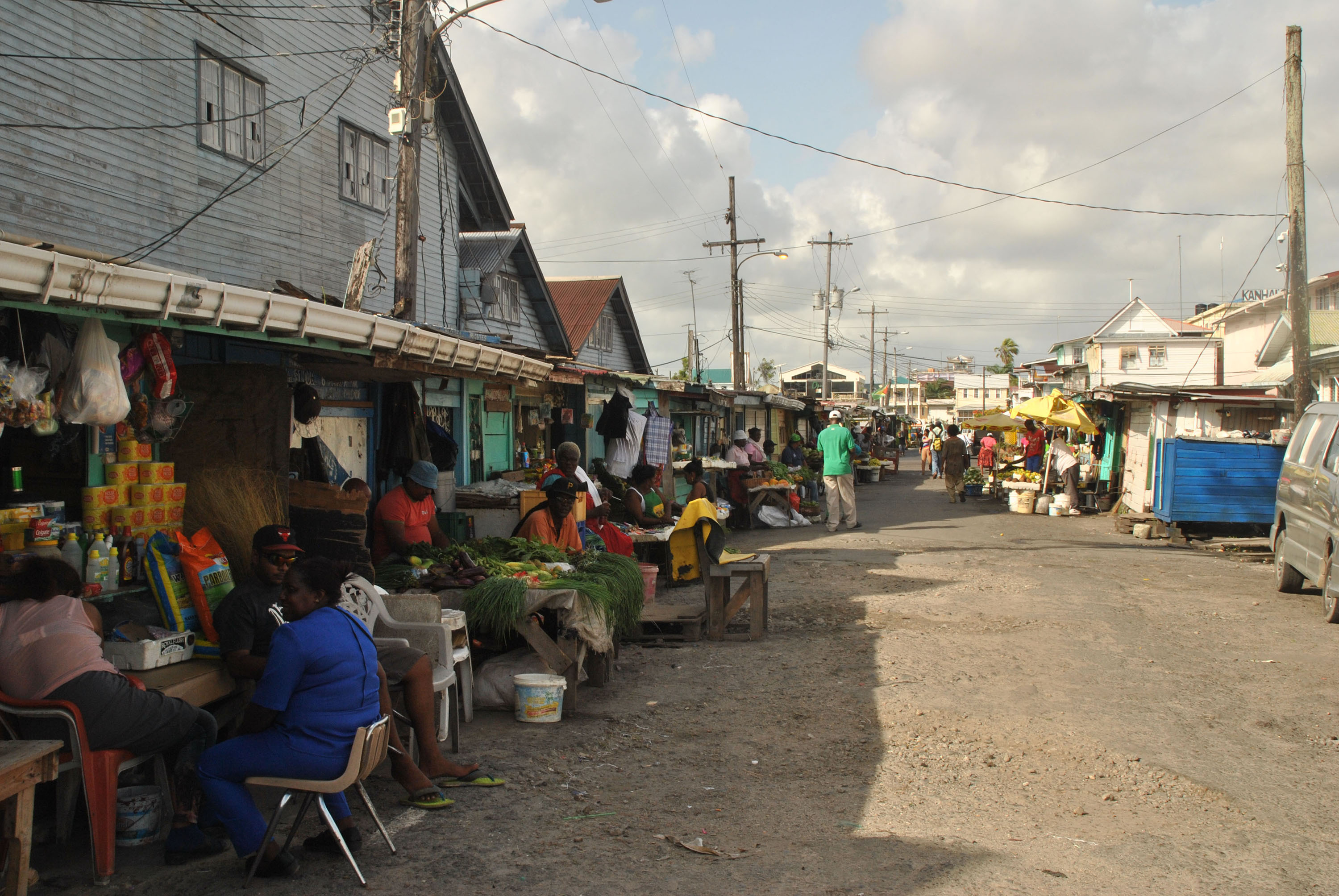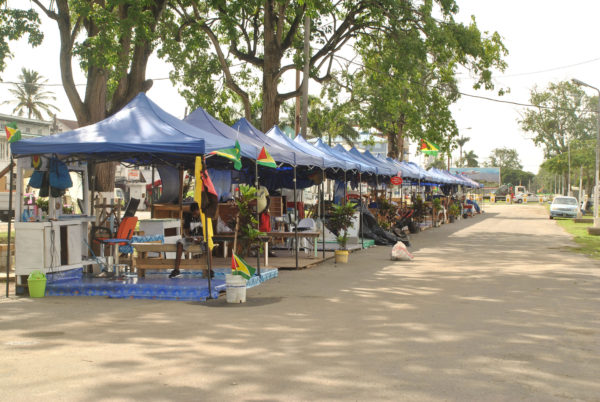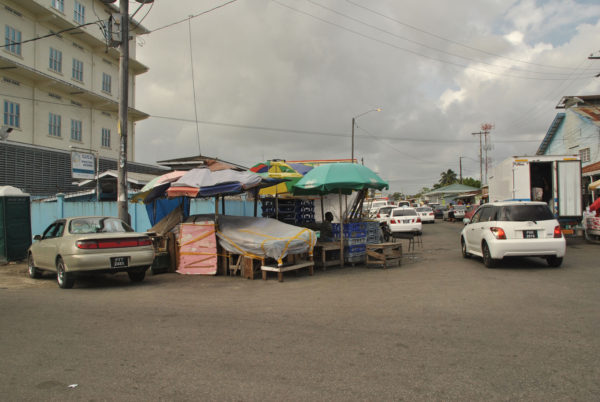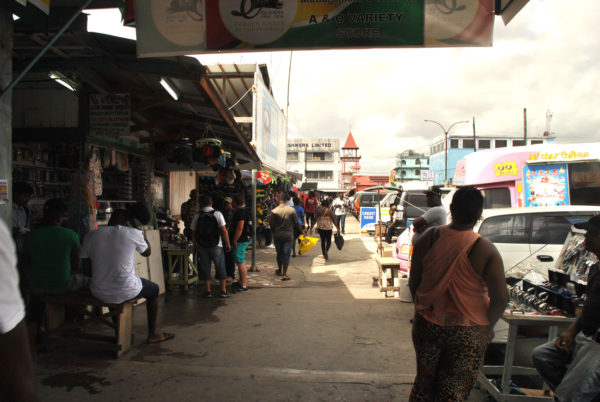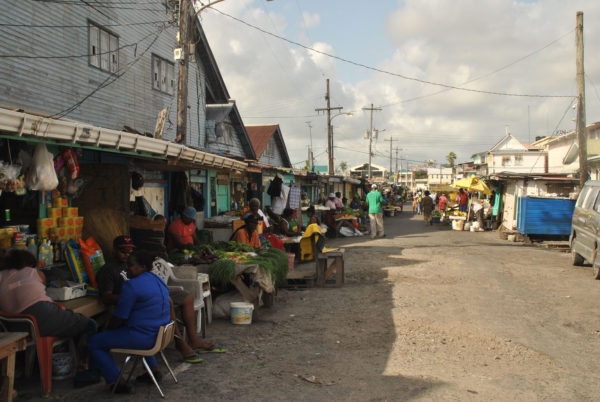No longer hamstrung by the burden of having been in office for more than two decades without having to face the electorate, City Hall is going about the business of fashioning the city in its image and likeness with a renewed assertiveness. Having won generous plaudits from the citizenry for its attempts to clean up Georgetown ahead of the ‘invasion’ of visitors from the diaspora for the jubilee independence celebrations, the municipality appears to have seized upon the high marks it has been given to go further.
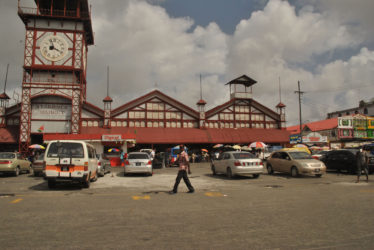
Prior to this year’s local government elections the council had engaged in a protracted confrontation to transform the image of Bourda Market, mostly by reconfiguring the vending regime at Merriman Mall and repositioning the vendors who, for years, had ‘dropped anchor’ on Bourda Street in the shadow of the dilapidated and dangerous former Bedford School. The vendors, predictably, had, for a while, resisted the initiative to uproot them from a condition which one private sector official had termed “entrenched squalor” though their resistance had disappeared in the face of the belligerence of newly appointed Town Clerk Royston King, who seemed set on building a reputation on a foundation of having transformed the city.
If you venture in the Bourda Market these days, there is evidence of the transformation. The vendors relocated from Bourda Street to Orange Walk appear, sometimes, to be still brooding though they have settled down to the necessary pursuit of trading, having been worn down by a combination of City Hall’s recent determination and the imperative of their own need to make a living.
Over on the Merriman Mall, a greater semblance of order manifested in the dispersal of the vendors further east, the creation of dedicated trading spaces and what would appear to be a waste management regimen that lends a greater sense of order to the general area, are all manifestations of the fact that City Hall may be beginning to win the battle to ‘retake’ the capital.
Across the wider capital the congestion of street vending and the chaos that had obtained outside Stabroek Market had served to reflect the sense of complete disorder that had, for years, passed for urban trading. City Hall’s fightback had begun with an attempt to hold the street vendors to some sort of order as far as the day-to-day management of garbage was concerned. That, for the most part appear to have worked though the drains on sections of Robb Street provide patent evidence of the fact that eradicating the practice of indiscriminate garbage disposal will take a great deal longer than City Hall might have anticipated.
The permanent congregation of a motley assortment of traders on the area just outside Bourda Market, had, over the years, come to symbolize the sense of disorder that passed for urban trading. On the fringe of the unceasing commercial chaos that prevailed there, with an entertainment dimension that strayed into the early hours of the morning, dimensions of illegality including small-time drug-trafficking and robberies persisted. There are stories of young men fresh from the ‘gold bush,’ heading for the area to spread some joy only to be relieved of whatever they might have in their pockets. Ridding the area of what had become both a hazard and an eyesore was City’s Hall next challenge.
Elsewhere in the capital the confrontations with delinquent traders had been protracted with City Hall hamstrung by a combination of the resistance of the vendors and a public that assumed a sort of ‘people-have-to-make-a-living’ posture. The difference—by the time the municipality had gotten around to clearing the area around the Stabroek Market—was twofold. First, the Town Clerk and team had by then been galvanized by the signals they had received that central government was in their corner as far as transforming the city was concerned. Second, was what appeared to be a definitive shift in the public posture towards trying to put Georgetown into some semblance of order, ahead of the arrival in the country of visitors for the Jubilee celebration.
What was significant in the clearing of the area in front of the Stabroek Market was the fact that it happened notwithstanding the fact that scores of the vendors had congregated in front of the Ministry of the Presidency hoping for intervention at that level of stop the relocation. What was also significant was that the determination of City Hall completely overwhelmed what appeared, initially, to be evidence of a measure of militancy on the part of the vendors that seemed likely to metamorphose into a confrontation.
The clearing of the area in front of Stabroek Market would almost certainly have brought some of the trading operations there to an end. Others have been limited or seriously discommoded on account of the fact that the alternative trading area is cramped and poorly-appointed. Inclement weather has had a devastating effect on the new site.
The brooding persists across the urban trading community. That was inevitable. The simple fact is that high unemployment having long made street vending one of the few viable, honest options; it was the city that has had to absorb the consequences of the new enterprises that sprung up in a chaotic manner. City Hall had been unprepared for it and had been compelled to react, its financial limitations and chronic inefficiency notwithstanding. In the process, the new breed of traders rode roughshod over the urban by-laws. They got away with it largely because of an outpouring of public understanding of the necessity for them to earn. The legitimate high street traders had learnt to adapt and even to co-exist with the pavement vendors. At the outset the urban business support organizations had staged some muted protests. Those had died away in the face of a groundswell of insistence that street vending had become a regrettable necessity.
Spaces like the Merriman Mall and the Water Street Vendors’ Arcade are no more than limited responses to a problem that can only be resolved by job creation.
City Hall, meanwhile, persists in its efforts to tinker with the appearance of the capital. It’s hard to say that it is winning. Where waste disposal is concerned it is up against what often appears to be an entrenched indifference to the virtues of a clean environment.
The problem with parking meters is that their most obvious virtue has to do with their role as a source of revenue for the municipality. Georgetown has long burst at the seams and however much we tinker with the existing space the growing imperatives of urbanization mean that there is simply no way around the reality of congestion. There can now be no serious argument against the reality that the capacity of Georgetown has long been overtaken by the volume of traffic it must absorb.
In the period ahead there will be more challenges associated with managing the city. That much is manifested in a recent decidedly indelicate remark made by the new Mayor of Georgetown and directed at the private sector. Mayor Patricia Chase-Green said that she does not want the private sector to tell her how to run the city. Truth be told, running the city is as much the business of the private sector as it is the business of the municipality and it is in the city’s interest that the mayor understands this.
The jury is still decidedly out on City Hall. Its track record in the matter of the management of the city and more particularly in the efficiency of its civil service has, over the years, been nothing to write home about. Charges of waste, misappropriation of municipal funds, corrupt practices and lack of capacity have, at various times, been levelled against City Hall. It’s hard to tell whether, despite all that has happened, the Augean Stables have been completely cleaned. The municipality remains under the public radar.
